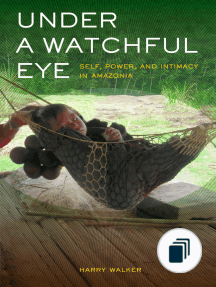Naikan is a Japanese psychotherapeutic method which combines meditation-like body engagement with the recovery of memory and the reconstruction of one's autobiography in order to bring about healing and a changed notion of the self.
Based on original anthropological fieldwork, this fascinating book provides a detailed ethnography of Naikan in practice. In addition, it discusses key issues such as the role of memory, autobiography and narrative in health care, and the interesting borderland between religion and therapy, where Naikan occupies an ambiguous position. Multidisciplinary in its approach, it will attract a wide readership, including students of social and cultural anthropology, medical sociology, religious studies, Japanese studies and psychotherapy.
Editorial Reviews
Review
'This fascinating and carefully researched study provides one of the few accounts of a modern nonwestern psychotherapy practice. It should be read by all interested in psychotherapy and culture.' - Tanya Luhrmann, University of Chicago, USA
'This is the most serious interpretation of the practice of Naikan I have come across...A compelling book that the reader will sit down and finish in a single reading and at the end assisted to look deeply into his or her own moral life. It is a book as much about our shared existential condition as about Japanese culture today.' - Arthur Kleinman, Harvard University, USA
About the Author
Chikako Ozawa-de Silva is Assistant Professor of Anthropology at Emory University. Her work focuses on cross-cultural understandings of health and illness, mind and body, religious healing practices, medicine and therapy in the fields of medical anthropology, psychological anthropology and the anthropology of religion by bringing together Western and Asian (particularly Japanese and Tibetan) methodologies and epistemologies.
Product details
Publisher : Routledge; 1st edition (September 27, 2006)
Language : English
Paperback : 224 pages
#116 in Shintoism (Books)
#430 in History of Ethnic & Tribal Religions
#689 in Buddhist History (Books)
Customer Reviews: 5.0 out of 5 stars 4 ratings
5.0 out of 5 stars
===
Incantessimo
VINE VOICE
5.0 out of 5 stars An important contribution
Reviewed in the United States on June 1, 2007
The Japanese introspection practice of Naikan is a fascinating example of a meditation-like self-cultivation practice that lies on the border of psychotherapy and spirituality. Through it, individuals probe into their own past experiences and their relationships with other people in their life, asking "What did I receive from this person?
What did I give back to this person? What trouble did I cause this person?"
Through this simple method, over the period of a week, they come to recognize profound truths regarding the interdependence of their lives, and the infinite small kindnesses others have shown them over time. The ensuing feelings of gratitude free up psychological and even at times physical blockages to allow relief and transformation.
Written in a very clear style and easily accessible by both layperson and scholars, this book provides an excellent description and analysis of the practice of Naikan.
One chapter is devoted to the narratives of Naikan clients themselves as they progress through their week of Naikan; this chapter is especially gripping, as the reader is able to journey along with the clients as they engage in the inner struggle that ensues when their preconceived negative perceptions and judgments of others are undermined by their own sustained reflection and remembering.
This book will be of value to general readers with an interest in meditation, introspection and psychotherapy. It is also an important contribution to the field of psychological and medical anthropology, as it provides an important analysis of a non-western psychotherapeutic method that works on the levels of both body and mind. It is also significant in that it relates Naikan back to the Buddhist psychological insights upon which the method was originally based, and which it still in many ways embodies.
Read less
8 people found this helpful
==
LoveDakini
5.0 out of 5 stars 'must have'
Reviewed in the United States on June 24, 2010
This book is a 'must have' for all social anthropologists. I found this book to be essential in my research re Japanese-American religious syncretism and associated social value practices.
===


